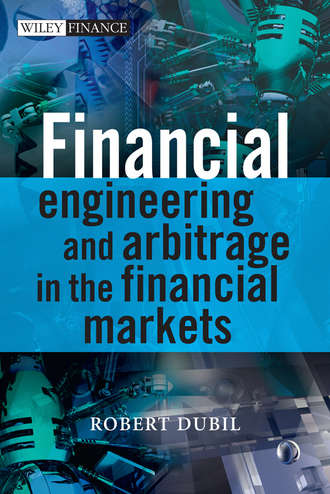Financial Engineering and Arbitrage in the Financial Markets
Robert Dubil
A whole is worth the sum of its parts. Even the most complex structured bond, credit arbitrage strategy or hedge trade can be broken down into its component parts, and if we understand the elemental components, we can then value the whole as the sum of its parts. We can quantify the risk that is hedged and the risk that is left as the residual exposure. If we learn to view all financial trades and securities as engineered packages of building blocks, then we can analyze in which structures some parts may be cheap and some may be rich. It is this relative value arbitrage principle that drives all modern trading and investment. This book is an easy-to-understand guide to the complex world of today’s financial markets teaching you what money and capital markets are about through a sequence of arbitrage-based numerical illustrations and exercises enriched with institutional detail. Filled with insights and real life examples from the trading floor, it is essential reading for anyone starting out in trading. Using a unique structural approach to teaching the mechanics of financial markets, the book dissects markets into their common building blocks: spot (cash), forward/futures, and contingent (options) transactions. After explaining how each of these is valued and settled, it exploits the structural uniformity across all markets to introduce the difficult subjects of financially engineered products and complex derivatives. The book avoids stochastic calculus in favour of numeric cash flow calculations, present value tables, and diagrams, explaining options, swaps and credit derivatives without any use of differential equations.
- Категория: зарубежная образовательная литература
- Правообладатель: John Wiley & Sons Limited
- Возрастное ограничение: 0+
- ISBN: 9781119950622
- Легальная стоимость: 7816.69 руб.





